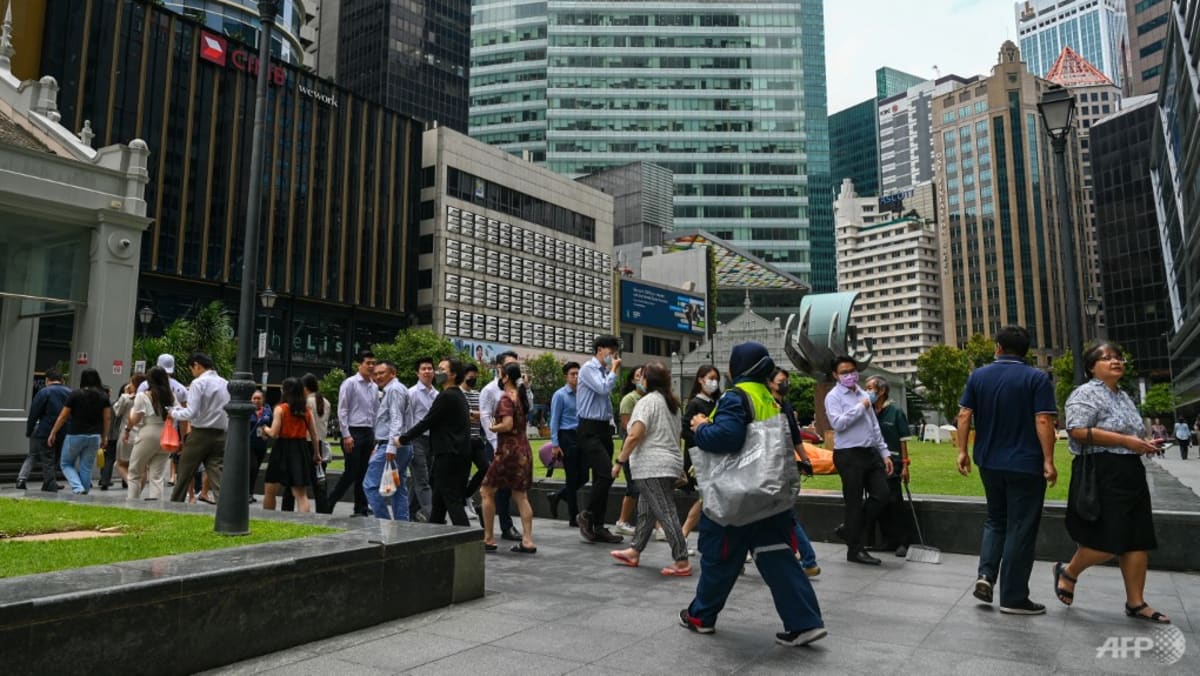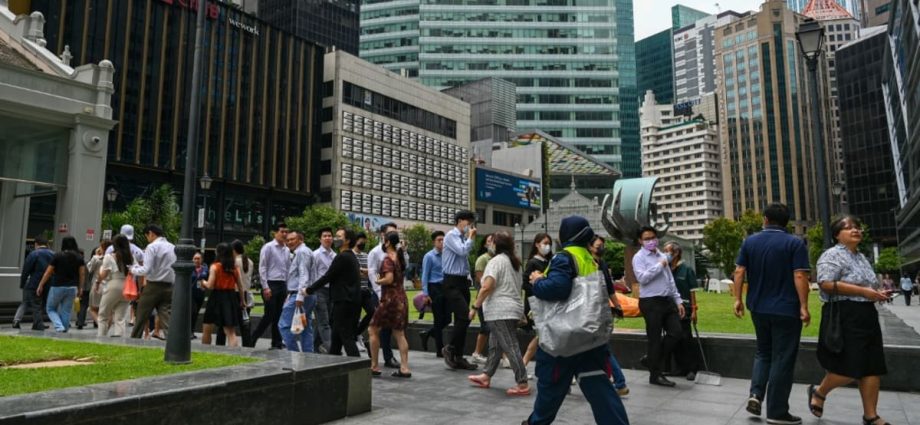
SINGAPORE: Singapore is set for tepid growth through the rest of the year, as the economy sees diverging prospects for its different sectors, economists said on Friday (Aug 11).
“The story of Singapore’s economy is really a story of two different parts,” said Oxford Economics’ senior economist Alex Holmes.
Singapore has narrowed its projection for economic growth this year, citing a weak outlook for external demand.
The growth forecast was trimmed to a range of 0.5 to 1.5 per cent, down from an earlier estimate of 0.5 to 2.5 per cent, the Ministry of Trade and Industry (MTI) said on Friday (Aug 11).
So far in 2023, Singapore’s economy has seen tepid growth. On a year-on-year basis, gross domestic product grew 0.4 per cent in the first three months before improving slightly to 0.5 per cent in the second quarter.
On a quarter-on-quarter seasonally adjusted basis, the economy eked out growth of just 0.1 per cent in the second quarter, a reversal from the 0.4 per cent contraction in the first quarter.
WHAT’S HURTING EXTERNAL DEMAND?
Singapore is a small economy that is highly dependent on external demand.
From 2015 to 2019, external demand accounted for around 67 per cent to 72 per cent of Singapore’s GDP, according to a piece published by MTI in its first-quarter economic survey in May.
Key markets include the United States and the Eurozone, but growth prospects in these economies are set to slow even more in the second half of the year when the effects of elevated interest rates take hold.
China’s growth is also expected to moderate through the rest of the year, as the post-pandemic recovery in services slows in tandem with deteriorating consumer confidence.
In addition, the ongoing global electronics downturn is “proving to be a little bit more protracted” than initially thought, MTI said.
A gradual recovery is only “expected towards the end of the year at the earliest” – a view echoed by HSBC economist Yun Liu.
“Trade headwinds are not dissipating,” said Ms Liu. “While there are some initial signs that point to stabilisation in the tech cycle, tech-heavy economies have not seen a meaningful turnaround.”
On top of that, there remains a host of uncertainties such as more persistent-than-expected inflation in the advanced economies, as well as the risk of escalation in the war in Ukraine and geopolitical tensions among major powers.

